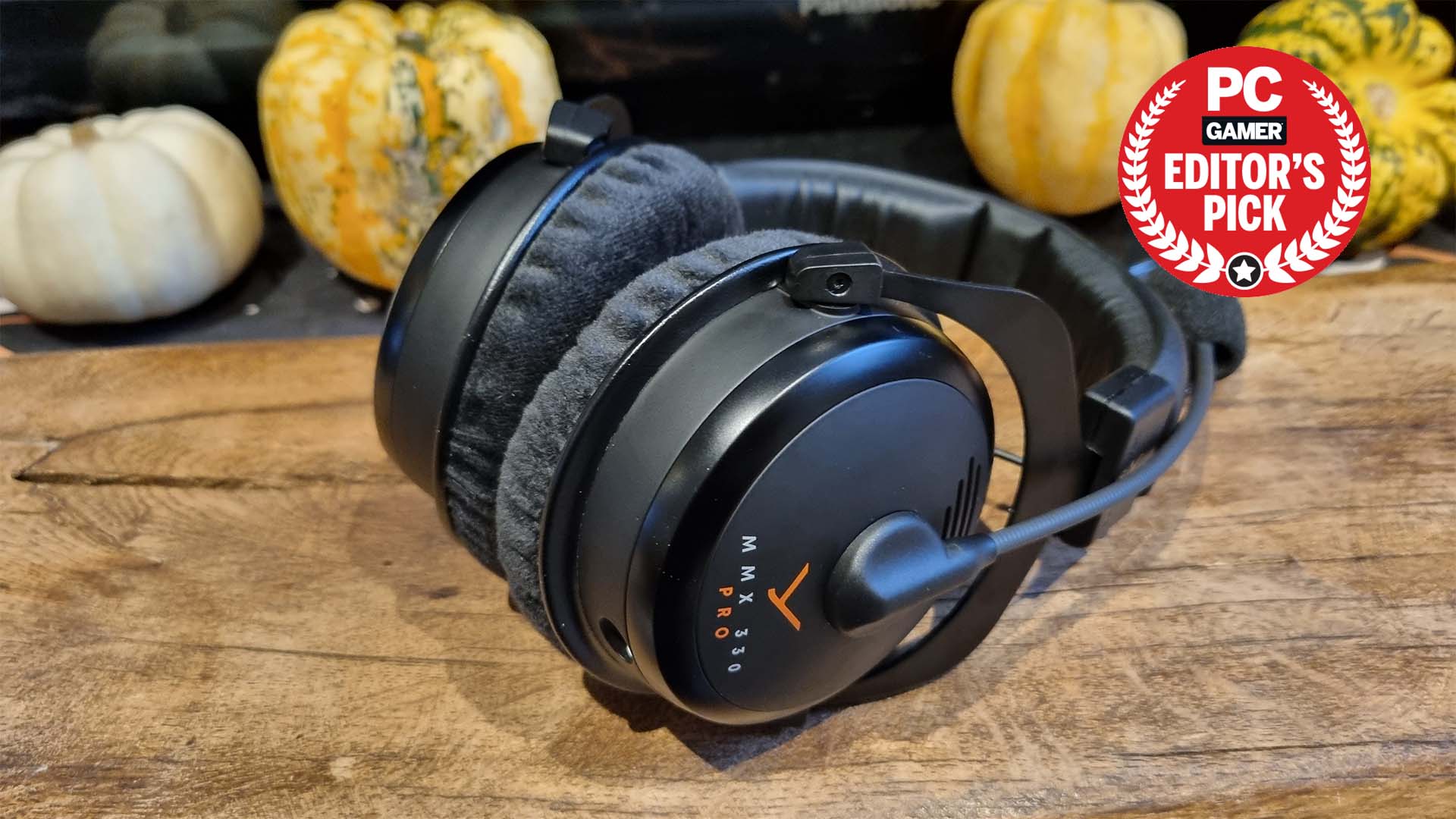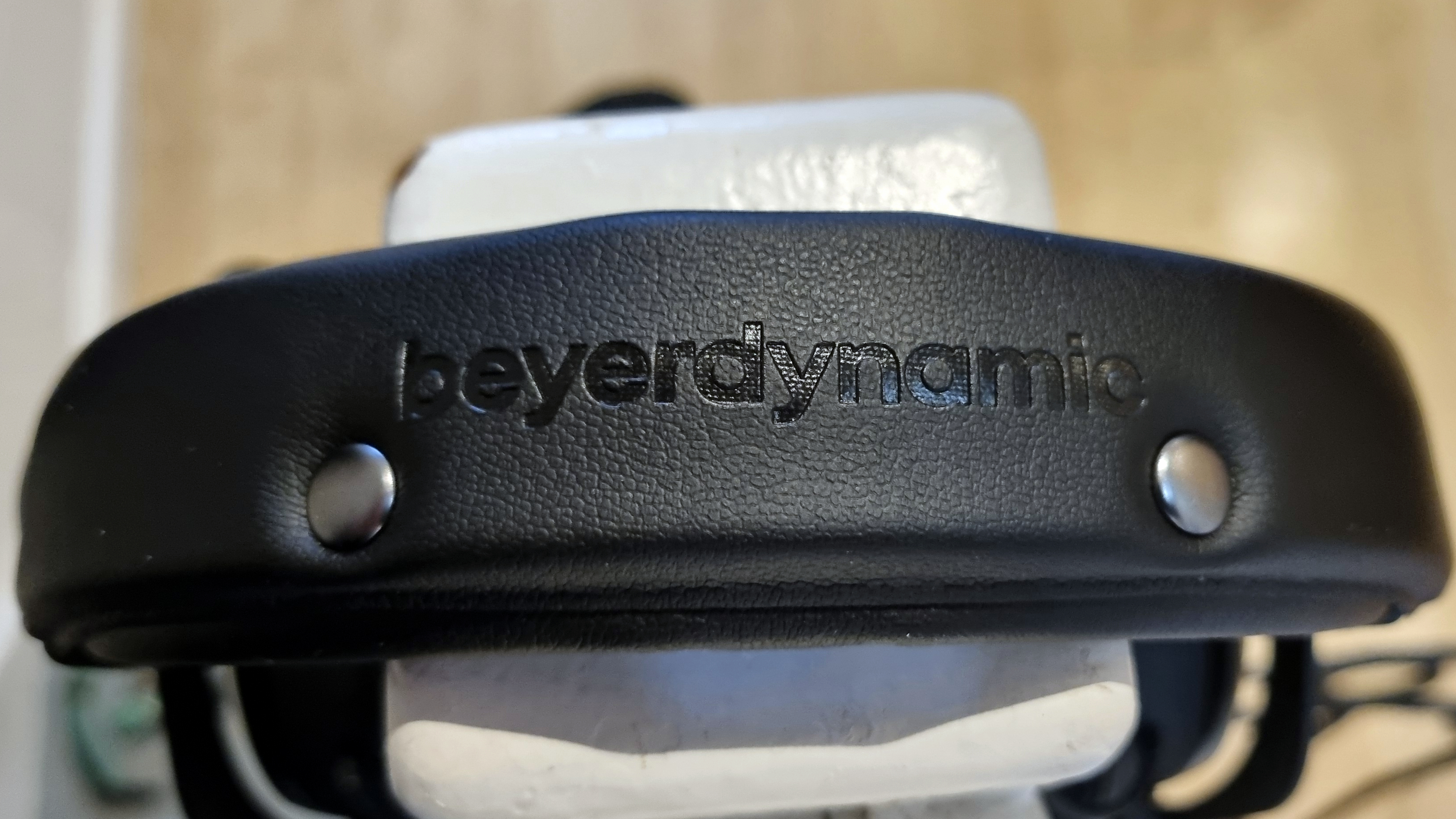Our Verdict
If a high-end studio-grade wired gaming headset is your goal, I can think of no better choice than the Beyerdynamic MMX 330 Pro open-back. It's just about the most comfortable thing you can put on your head, and has a supremely well-balanced sound. Pricey, though.
For
- Properly comfortable
- Balanced yet powerful sound profile
- Excellent mic
- Wide and airy soundstage
Against
- Pricey for a wired gaming headset
- Cable is slightly bulky
- Non-detachable mic
- No noise reduction software
PC Gamer's got your back
Wired headsets can feel a little old-fashioned these days. After all, with so many great wireless headset options available, tying yourself to your machine with a cable seems like quite the restriction. Plus, it limits your options as to what role in your life it can provide—plenty of great wireless headsets support Bluetooth as well as RF 2.4 GHz connections, making them perfect for travel, whereas many modern phones don't have 3.5 mm audio out ports anymore.
Still, when it comes to ultimate sound quality, many point to wired headsets as delivering the goods better than their wireless counterparts. That means any wired gaming headset is going to have one main purpose—delivering great audio while you're sitting in front of your PC. And if you're asking $330/€300 for one, like the Beyerdynamic MMX 330 Pro I'm wearing right now, it'd better be something special. I wouldn't normally frontload a review with an overall opinion, but in this case I'll make an exception: This one is special.
So what do you get for your moolah? Well, this particular version of the MMX 330 Pro is described as an open-backed headset, meaning there are vents in the ear cups that expose the rear of the drivers to the open air. Proper open-backs expose the rear of the drivers almost entirely and are the sort of cans that will cause audio nerds to writhe in ecstasy at their mere mention, thanks to a perceived "airier" soundstage and superior audio positioning.
However, that design will leak a significant amount of audio into the space around you, and have less than ideal passive noise isolation—whereas closed-backs provide both, but usually have a more limited, narrower soundstage.
Semi-open-back headphones are something of a compromise, and I'd say the Beyerdynamics definitely fit better into this category. The small earcup vents widen the soundstage significantly, but they're not so open as to leak out huge amounts of audio or provide zero passive noise isolation. It's a bit of a halfway house solution, and this headset is all the better for it.
The drivers at play here are Beyerdynamic's 45 mm Stellar.45 units, the very same you'll find in the DT900 Pro X and DT700 Pro X studio headphones. Pay attention to that first one—it's currently the set of headphones sitting at the top of our best audiophile headphones for gaming guide.
Yep, the very same drivers are here, in this much more gaming-focussed headset. And they're fabulous. I've used a fair few studio headphone sets over the years, and while they can be stunningly accurate, they can also become quite fatiguing over long listening periods. There are no such worries here. Everything is pinpoint accurate and beautifully well positioned in the soundstage, but the overall effect is still warm, pleasant, and comforting.
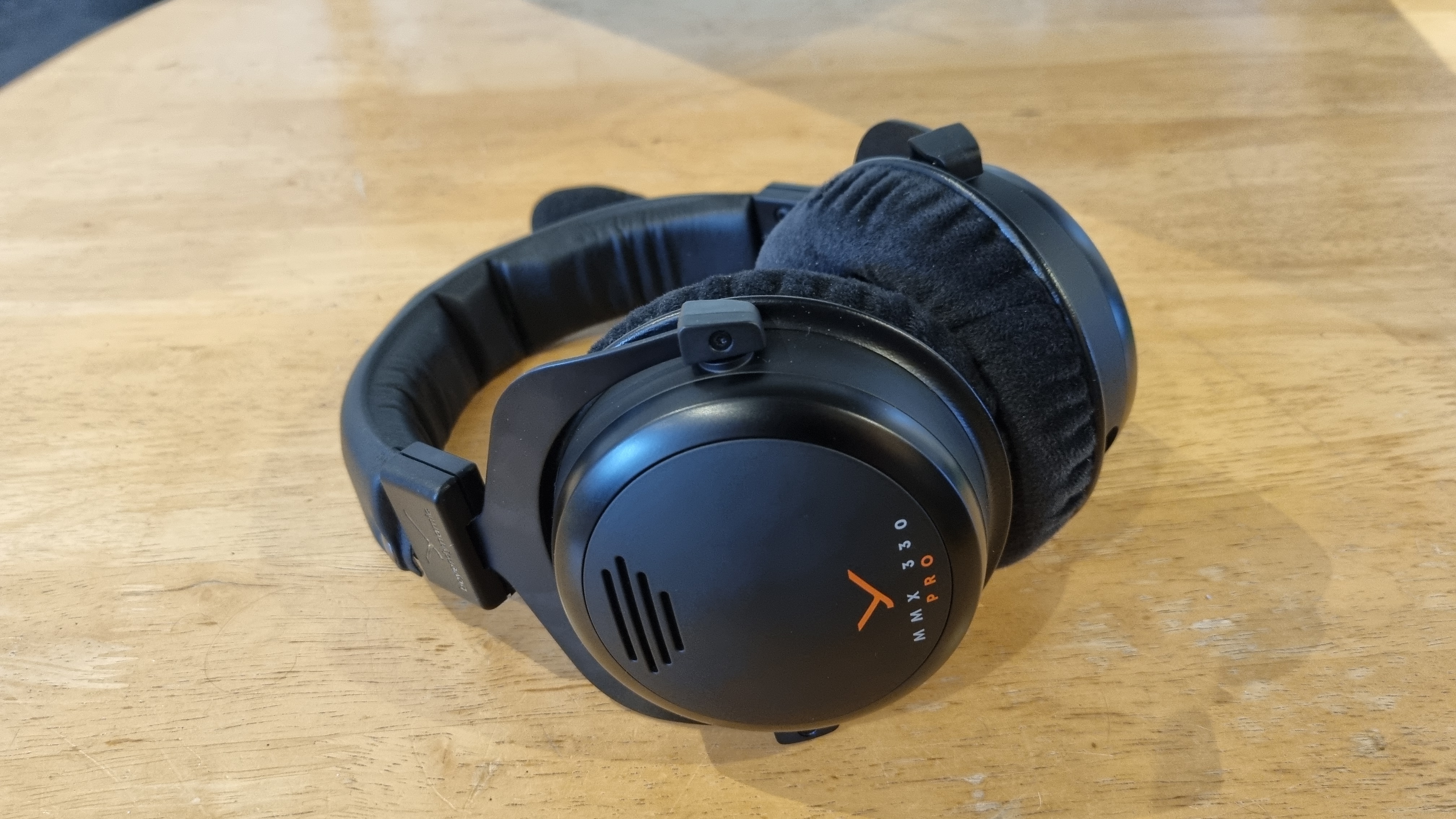
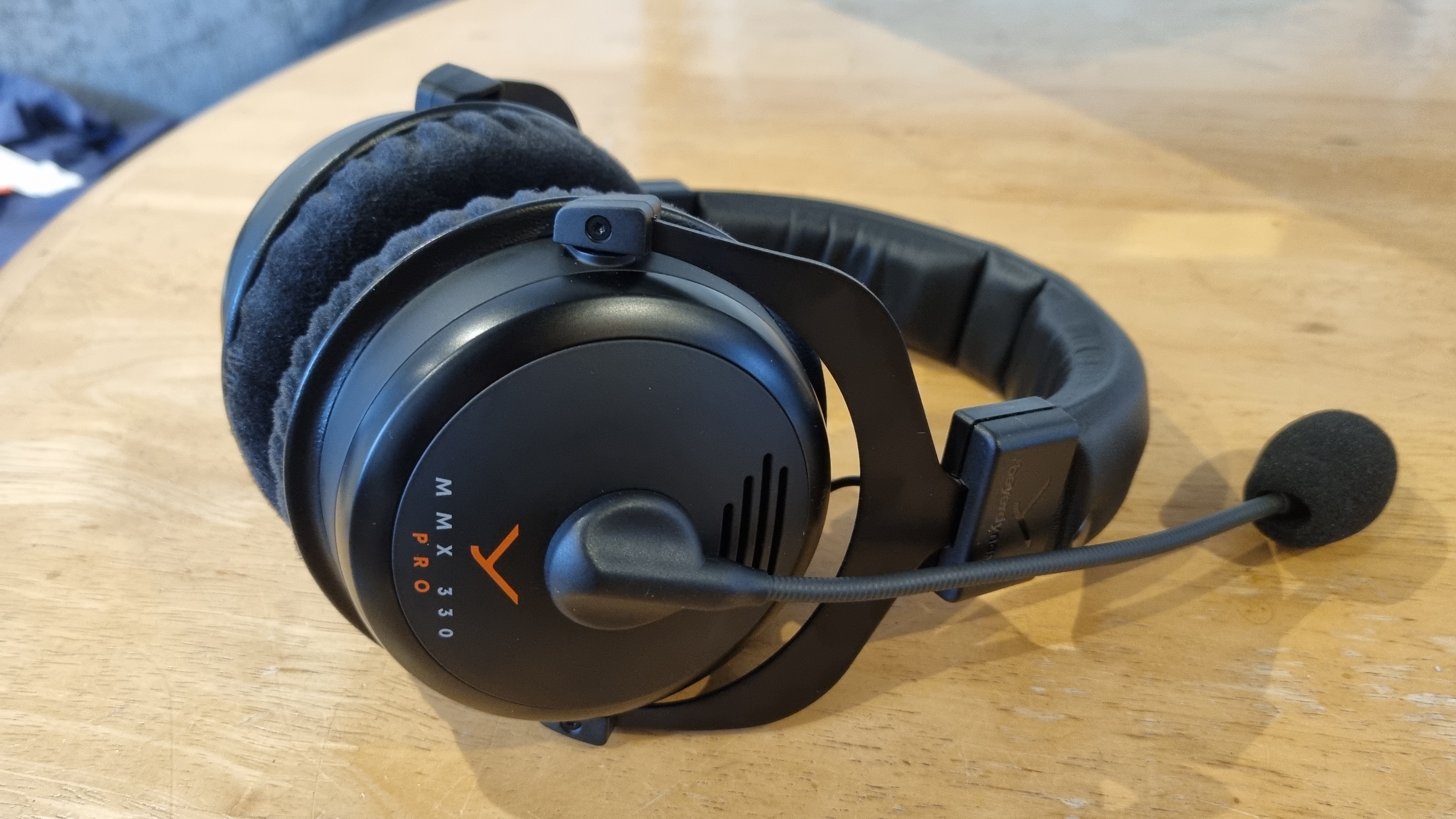
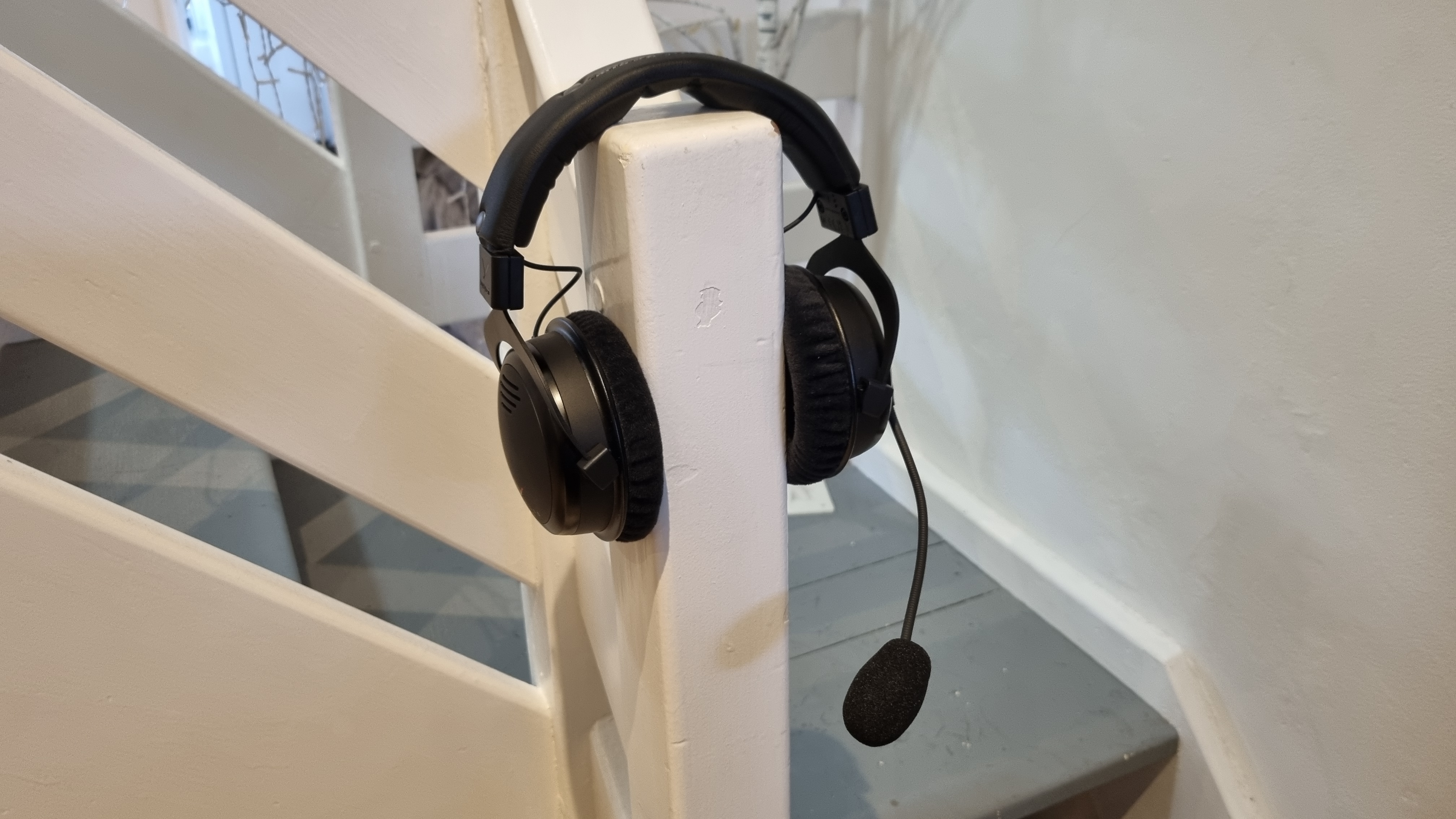
Bullets whip past your ears in Grey Zone Warfare with a spine-tingling sizzle, while the grinds and crunches of my nightmare Satisfactory build have a level of depth to them that I hadn't noticed before. It's often said that the most important thing in a gaming headset is a brilliant set of drivers, even if they're not gaming-specific, and that's brought into sharp relief here.
Keep up to date with the most important stories and the best deals, as picked by the PC Gamer team.
Musically, those drivers really get to work. What's most impressive here is the beautiful, golden quality of the staging and the reproduction. That minimal earcup venting really does widen out the soundstage, and narrows up a little if you cover them with a bit of electrical tape (yes I did put cheap tape on a $330 set of headphones, out of sheer curiosity). This headset is simply a gorgeous canvas to paint your tunes across, with a shiny, self-assured quality from low end bass to high end treble.
Speaking of low end, the MMX 300 Pro is bassier than I was expecting for an open-back set. Not in a horribly overblown, Beats-like way (I could write several articles on my hatred for the Beats, but this is not the venue), but more that, should your choice in music have some significant sub-bass, like Fritz Kalkbrenner's "Facing the Sun", this set can stage it exactly where it needs to be.
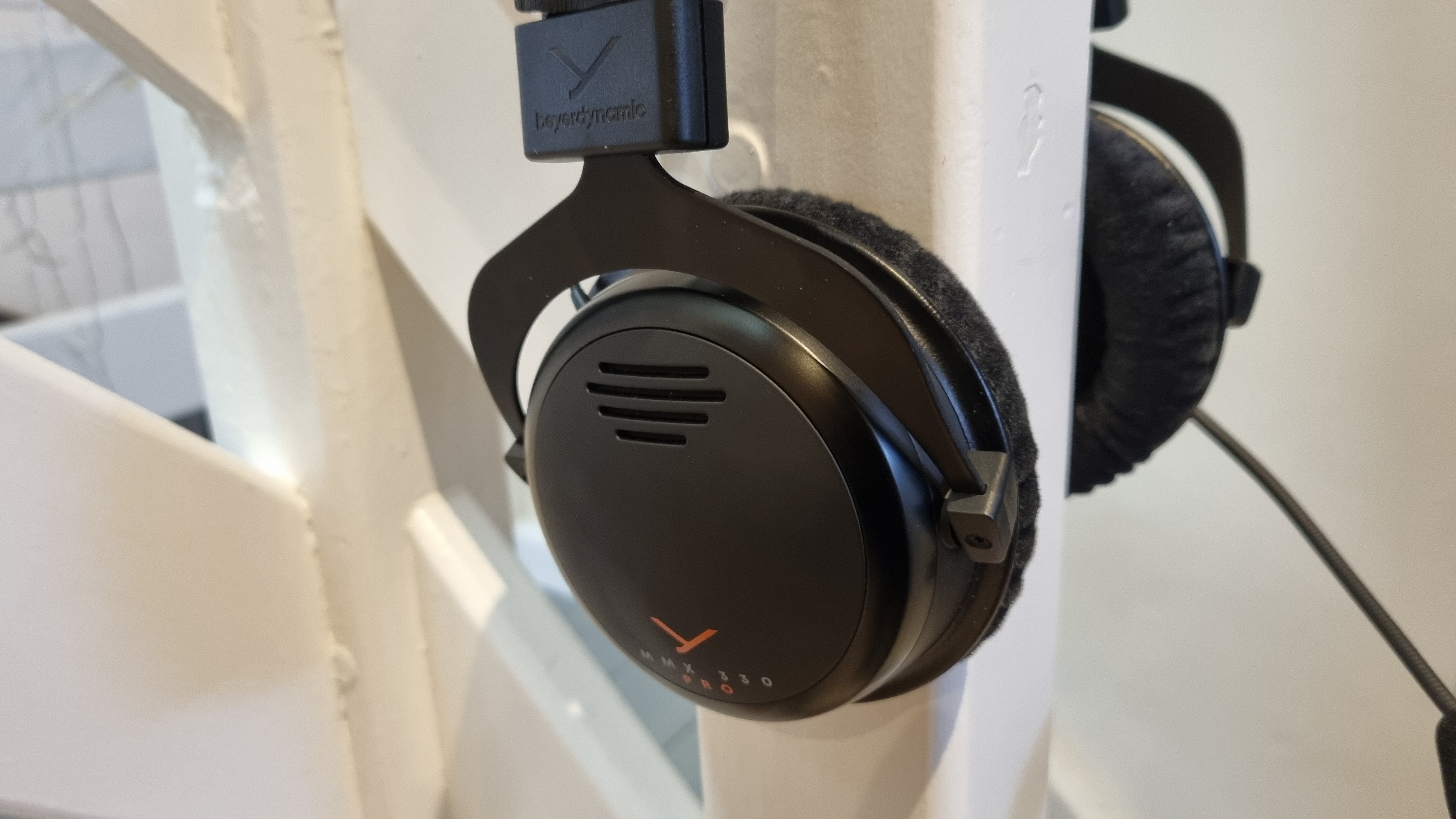
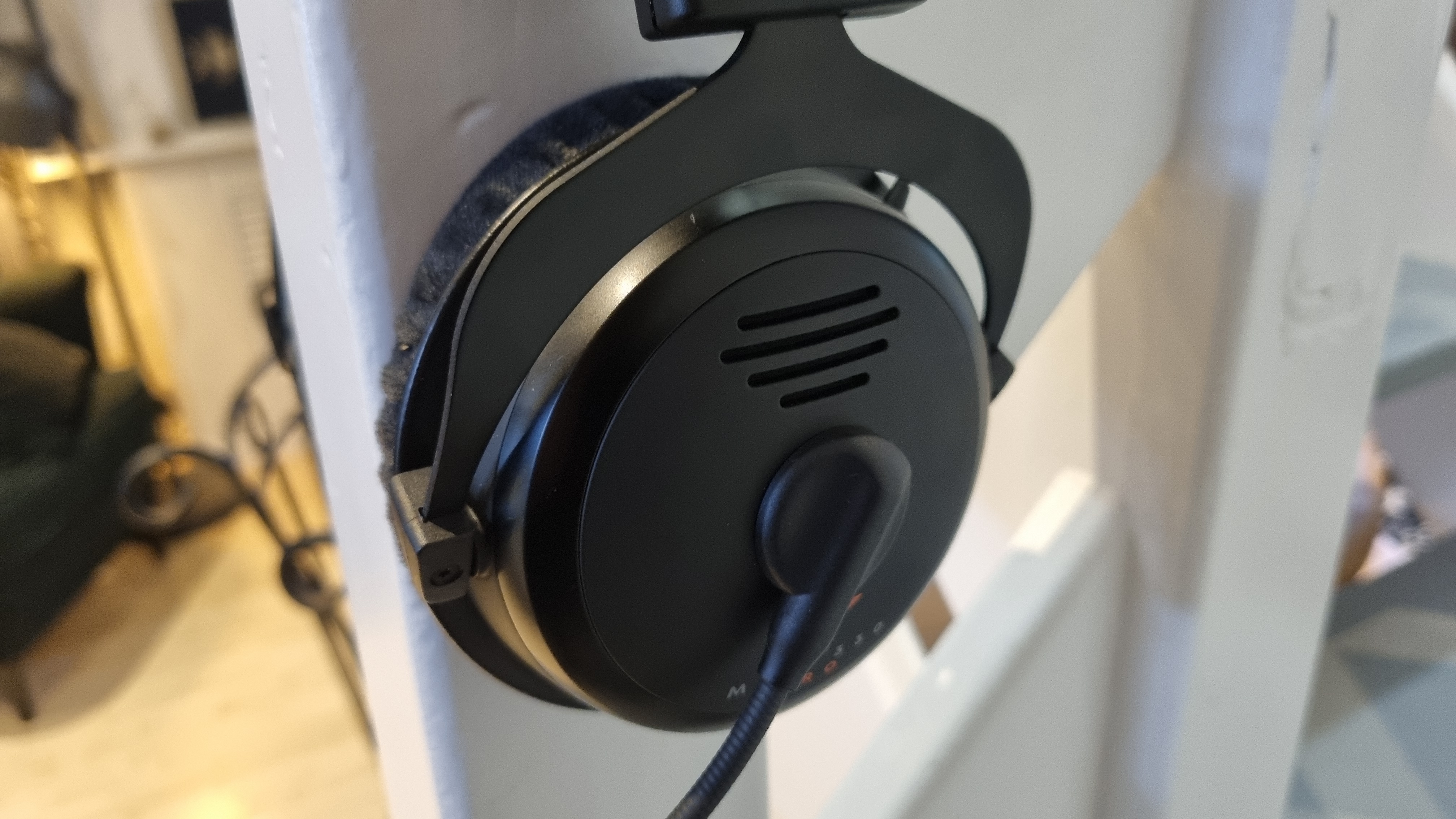
Lesser drivers would either ignore that ultra-low end entirely, muddy it, or boost it to high heaven. Nope, here it sits exactly where you want it in the mix, low, dark, jaw-tingling and smooth, while the guitar part shimmers above it. Darned impressive that, and on first listen caused me to exclaim out loud to my partner:
"Man these things are good."
And then there's comfort. Put simply, I think this might be the most plush, cushy feeling headset I've ever worn. The velour earpads cosset your ears in the same way your posterior gets cosseted by your favourite couch, while the memory foam headband is supportive yet comfortable in all the best ways.
There's even a little cutout in the middle of the interior of the band to prevent fontanelle pressure, making this set an absolute pleasure to wear all day. It's a subtle thing to behold too, so you'd have no problem wearing it in a professional environment, unlike some other, zanily-coloured headsets I could name. As an all-day office warrior, I can think of few better headsets to attach to your bonce.
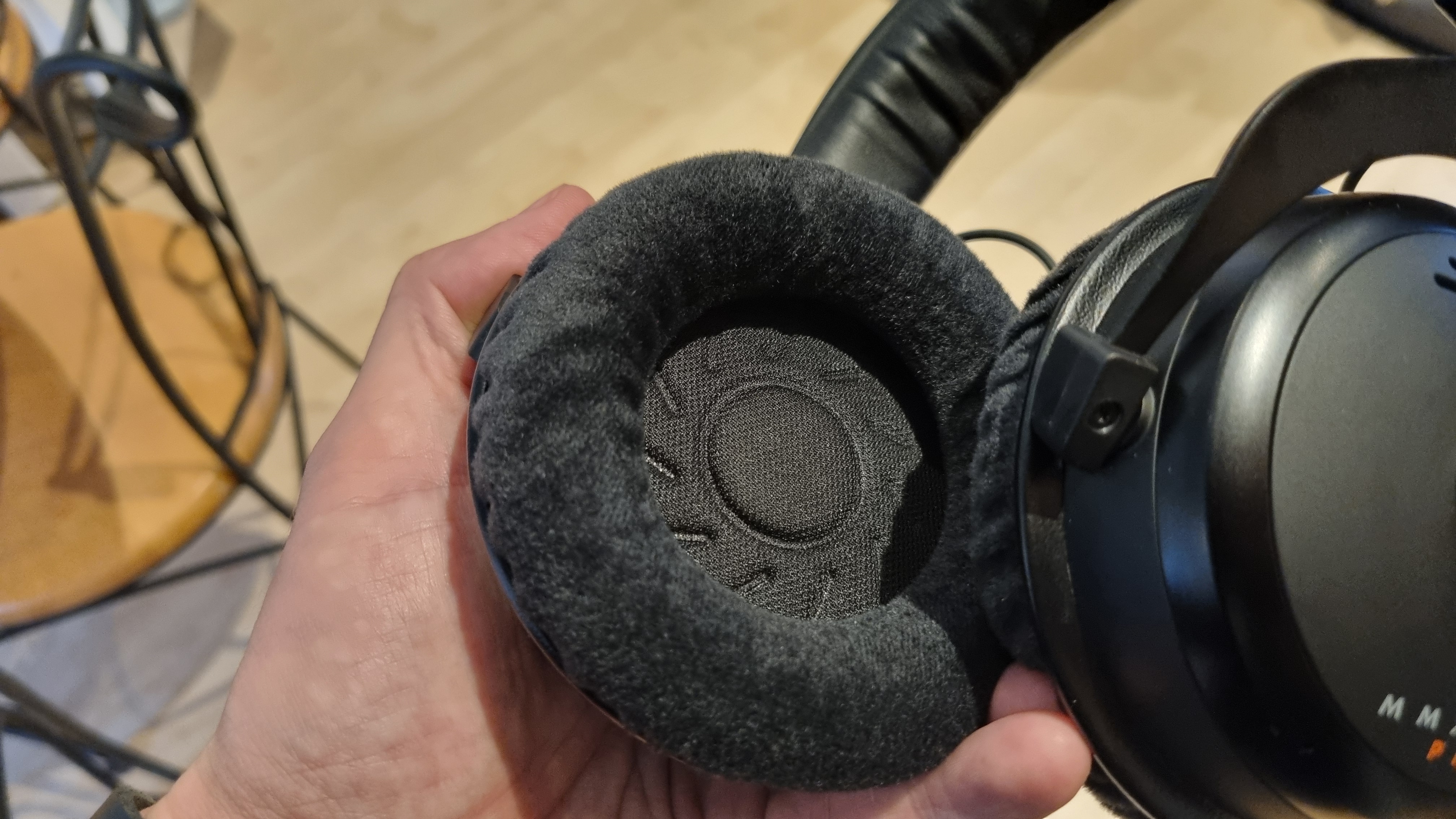
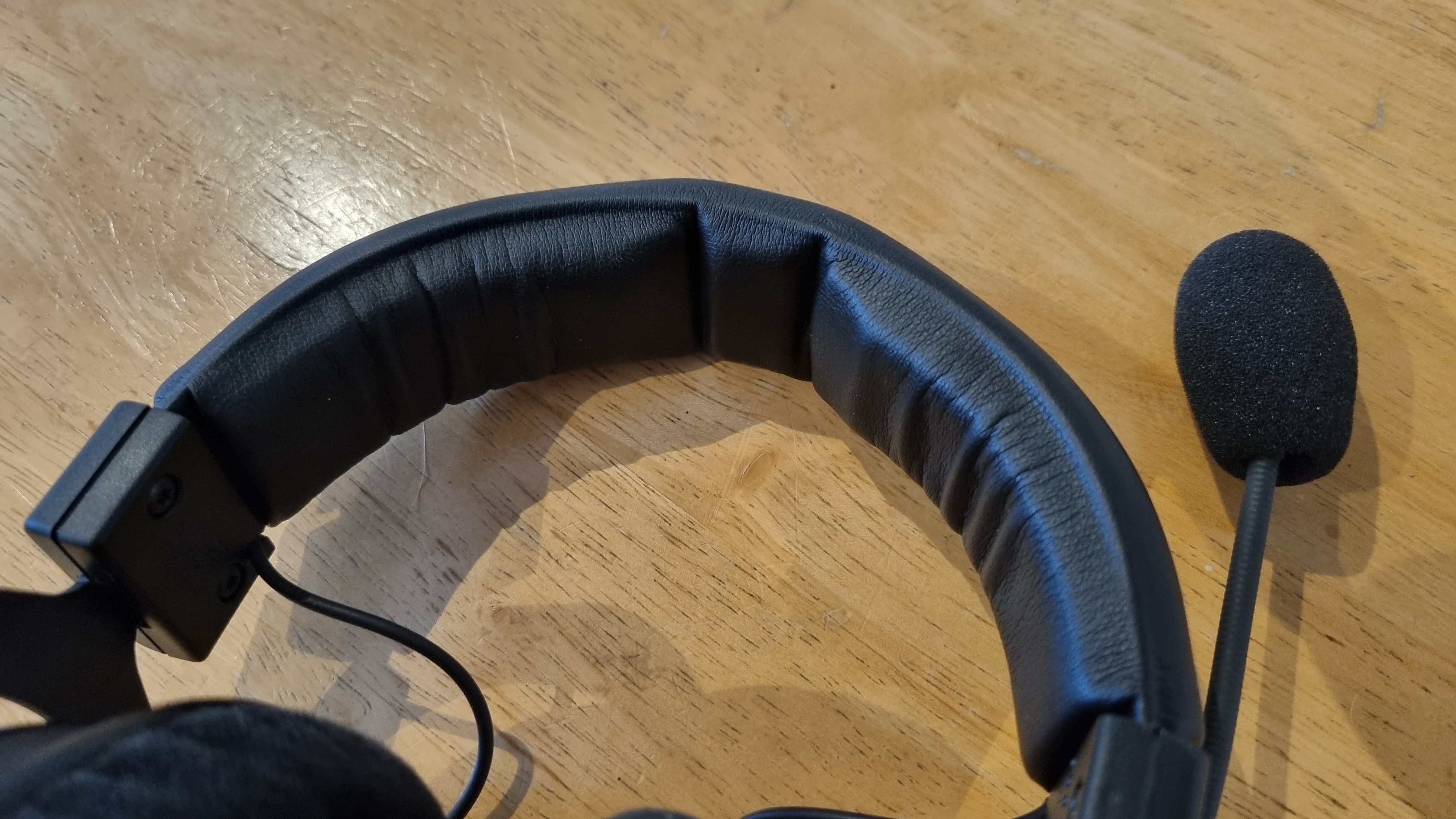
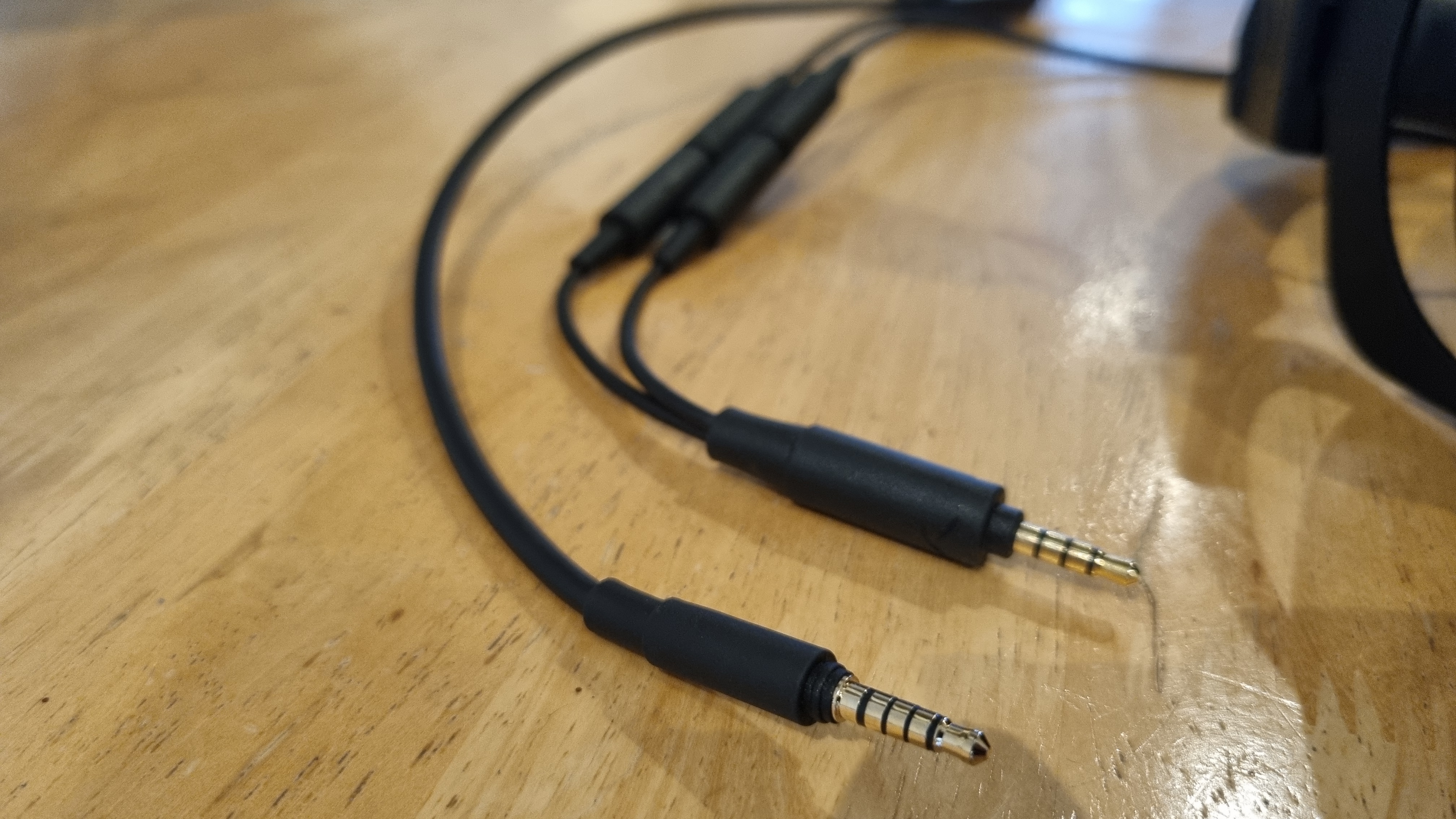
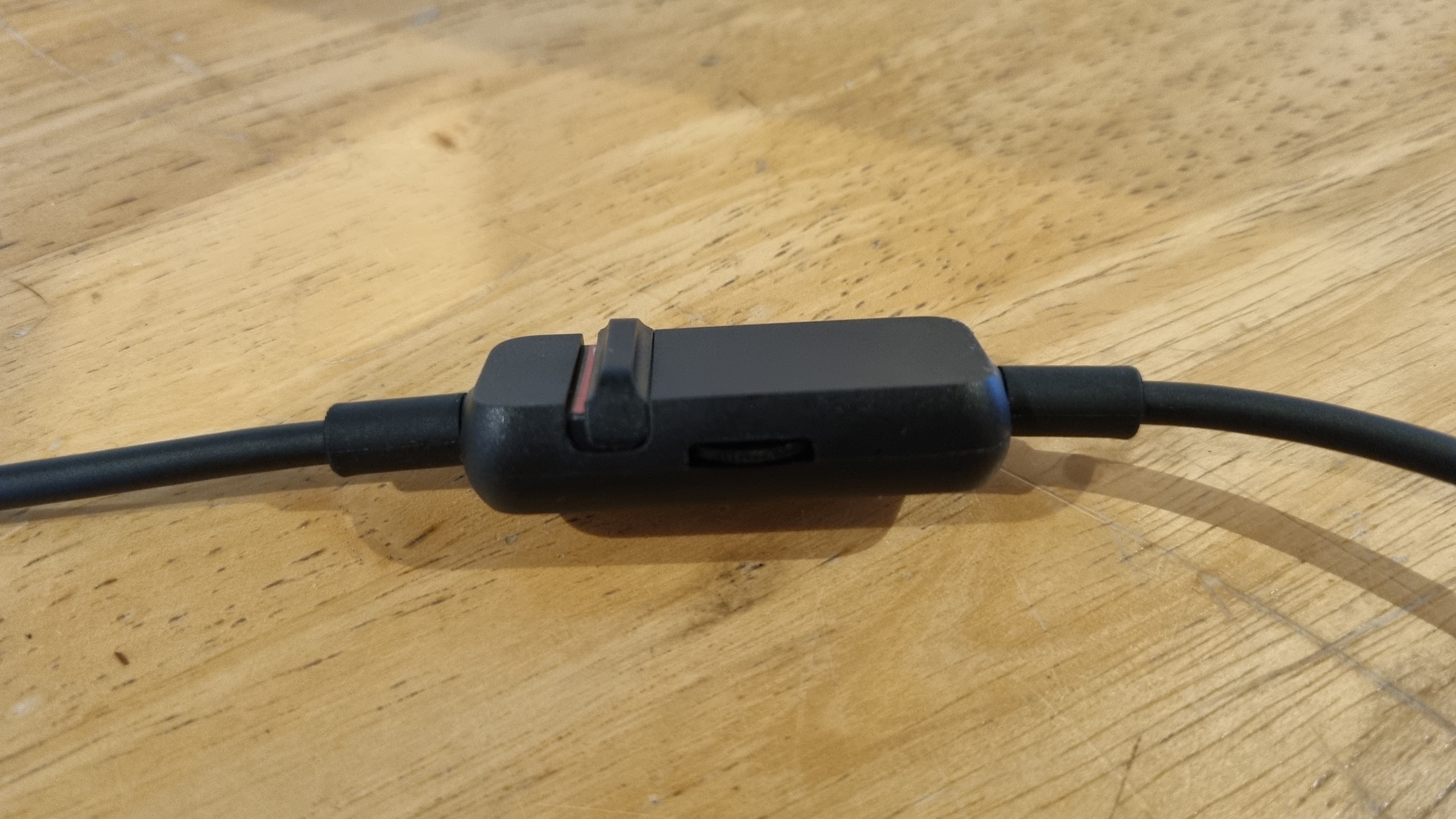
That being said, as a semi-open-back set (Beyerdynamic might not agree, but I'm sticking to it), you may slightly annoy your colleagues. Again, the sound leakage is here, but it's nowhere near as bad as a fully open-backed set. A good compromise, but it's worth bearing in mind that those in the near vicinity will still be able to hear what you're listening to at high volumes.
Unlike the DT900 Pro X, the MMX 300 Pro has a proper, flip down gaming microphone. This is a cardioid condenser mic, and bad news, it's not detachable. The good news is, it sounds excellent, capturing a rich, warm tone with plenty of crispy detail. There's no noise reduction software included here, so you will get a tiny amount of background hiss, and if you put it too close to your mouth it does get a little plosive. That being said, keeping it at a reasonable distance results in truly excellent headset vocal capture.
Beyerdynamic describes it as "broadcast quality", and I have a tendency to agree. I'd still put it through some very light noise reduction before using it on anything professionally recorded, so it's a shame there isn't any available as part of the package here. But the audio quality is excellent regardless, and any background hiss is minimal for a raw mic signal. It's certainly a lot better than almost all other gaming headsets when it comes to recording rich, properly weighted vocals, so it's another win for the Beyerdynamics overall.
You do have a bit of a bulky cable to contend with though. There's an included adapter to merge the mic and headphone jacks into one 3.5 mm output, and while it's excellently made and reassuringly thick, it does feel a bit overdone.
✅ You're looking for exceptionally good sound: There's no two ways about it—the MMX 330 Pro sounds fantastic, and that rear venting really does widen the soundstage for atmospheric game audio and musical chops alike.
✅ You don't mind a cable: This is a wired headset only, so you're tied to that cable, for better or worse.
❌ You'd like to take your cans on the move: The Audeze Maxwell is still the better choice for versatility of connection options, although when it comes to sound it's a close run thing—and the MMX 330 Pro is more comfortable.
❌ You're the private type: That venting does leak a small amount of sound, so be prepared for your tunes to be heard by your deskmates at volume.
I'd also prefer something braided to prevent tangling. Still, there's a handy inline mute switch and volume dial, and it's decently long, so running it around the back of a floor-dwelling PC shouldn't be an issue.
So then, this is a supremely comfortable gaming headset, with proper studio-grade drivers, a stunning sound profile, an excellent microphone, and build quality that feels like it'll last. The only thing that gives me slight pause is the price, as one of our favourite audiophile gaming headsets, the wireless, planar magnetic, and also truly brilliant Audeze Maxwell can be had for roughly the same money.
Would I go for the Maxwell over the MMX 300 Pro? Yes. Just. That's mainly for the freedom of choice that wireless headset provides, and those staggeringly good planar magnetic drivers. The Beyerdynamic set is a truly worthy competitor though, and if I cared not a jot for taking my cans on the move, I think it'd be a matter of flipping a coin to choose between the two.
Given the audio bliss on offer here, and the sheer quality of the headset overall, I actually think that $330 price tag is just about reasonable—even for a wired set. It's a luxury, highly-engineered, and boutique piece of gear, and it demonstrates that in every single aspect it provides. It's not often I come across a headset that really makes my jaw drop with its sound quality, comfort, and overall design, but the Beyerdynamic MX 330 Pro is just that. It's nice to have nice things, ey?
If a high-end studio-grade wired gaming headset is your goal, I can think of no better choice than the Beyerdynamic MMX 330 Pro open-back. It's just about the most comfortable thing you can put on your head, and has a supremely well-balanced sound. Pricey, though.

Andy built his first gaming PC at the tender age of 12, when IDE cables were a thing and high resolution wasn't—and he hasn't stopped since. Now working as a hardware writer for PC Gamer, Andy spends his time jumping around the world attending product launches and trade shows, all the while reviewing every bit of PC gaming hardware he can get his hands on. You name it, if it's interesting hardware he'll write words about it, with opinions and everything.
